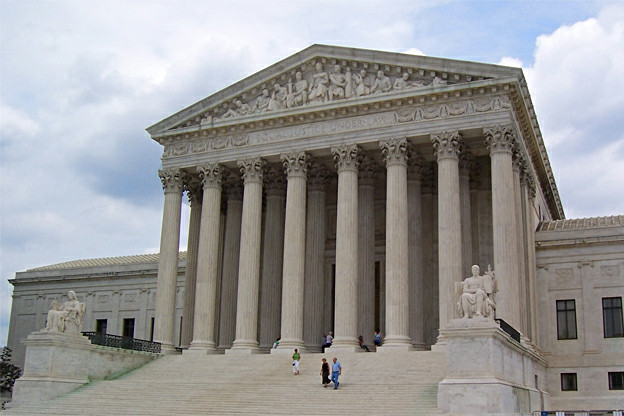

A judge wins a Spotty ™!

Graphic by Tild
For his thoughtful Strib op-ed essay on reinvigorating public trust in the judiciary, the Honorable Kevin S. Burke, a judge of the District Court in Hennepin County, wins the coveted Spotty™ award.
Evidence of the low regard in which judges and the judiciary are held is all around, and it’s been particularly evident in remarks by Republican candidates for the judiciary, including Michelle MacDonald.
But as Judge Burke points out, the worst wounds to the judiciary are the self-inflicted ones, and he referred to the Supreme Court’s decision in Obergefell (the gay marriage decision resisted to this day by Kim Davis and other clerks, primarily, but not exclusively, in the South), or rather Justice Scalia’s dissent in the case. Here’s what Judge Burke wrote:
Many question the decision of the U.S. Supreme Court to prevent discrimination against gay people who wish to get married. But Justice Antonin Scalia helped undermine the public’s trust when he gave a speech where he called the majority’s decision the “furthest imaginable extension of the Supreme Court doing whatever it wants.” Scalia said that the Supreme Court was made up of no more than “lawyers” who are “terribly unrepresentative of our country.” He spoke dismissively of the Supreme Court’s East Coast, Ivy League, New York City composition, calling the court a “select, patrician, highly unrepresentative panel of nine.”
Scalia used pretty tough language that echoed his dissent when he accused the court of being a “threat to democracy” and the justices he disagreed with as the “Ruler of 320 million Americans coast-to-coast.”
Here’s one of the things that Justice Scalia wrote in his dissent in Obergefell:
“If, even as the price to be paid for a fifth vote, I ever joined an opinion for the Court that began: ‘The Constitution promises liberty to all within its reach, a liberty that includes certain specific rights that allow persons, within a lawful realm, to define and express their identity,’ I would hide my head in a bag. The Supreme Court of the United States has descended from the disciplined legal reasoning of John Marshall and Joseph Story to the mystical aphorisms of the fortune cookie.”
I observed, in the story that contains the quote and is linked above, that Scalia, and Roberts, Alito and Thomas, too, by heaping scorn on their own institution — of which they ought to be its most faithful stewards — were inciting the lawlessness of the Kim Davises of the world.
And shame on them.
Remember, friends, a Spotty™ is awarded to the writer of an op-ed, letter to the editor, or a blog post or comment, that I wish I had written myself.
Update: The lawlessness is metastasizing.
Thanks for your feedback. If we like what you have to say, it may appear in a future post of reader reactions.

